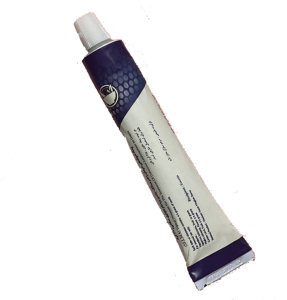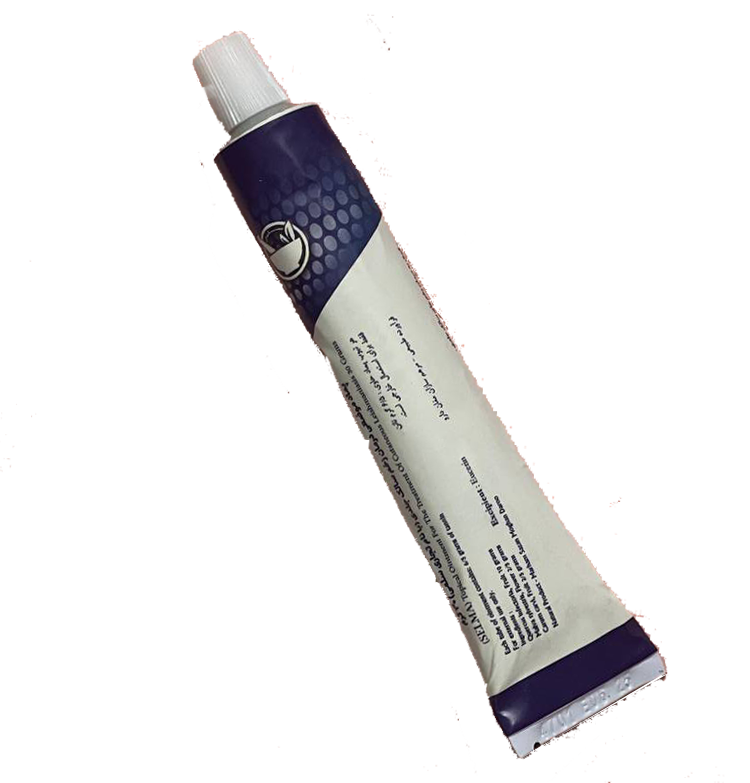Description
M product: herbal medicine for the treatment of Cutaneous leishmaniasis

Drug form: Ointment
Ingredients: forest oak, Khabazi marshmallow, black cumin
Approvals and steps taken to obtain a drug production and distribution license from the Food and Drug Organization:
Successful animal testing (mouse)
Confirmation of Mashhad University of Medical Sciences that it is innovative, has no domestic or foreign equivalents and the possibility of industrialization of the drug
Obtaining a patent certificate
Successfully performing the stability test and obtaining the approval of Karaj Academic Jihad as a reference for conducting pharmaceutical stability tests
Obtaining the code of ethics for human testing from the ethics committee of Islamic Azad University
Registering the trial and obtaining the IRCT code from the Iranian Clinical Trial Registration Center
Successful completion of the human phase.
General information:
Leishmaniasis is a common disease of humans and animals, which exists in most parts of the world and manifests as skin (salk), visceral (kala-azar), and skin mucosa lesions.
Leishmaniasis is transmitted through protozoan parasites of the Leishmania family and through the bite of certain types of mosquitoes. This is a common disease between humans and animals. The main reservoir of the disease is canines and rodents, and humans are considered accidental hosts. Leishmania parasite in vertebrates lives and reproduces inside mononuclear xenophagous cells (mainly tissue macrophages). This disease has always been the focus of the WHO organization. So that recently the research department of tropical diseases has placed this disease in group I of emerging and uncontrolled diseases. Today, despite the huge advances in the field of medical sciences and human success in fighting various diseases, leishmaniasis is considered one of the most important health problems in the tropical regions of the world due to causing death and disability, so that the World Health Organization has classified this disease in It has introduced six important diseases in the world
Unfortunately, our country is one of the important centers of salicylic acid, and among the polluted areas in Iran are Isfahan, Kerman, Khorasan, Fars, Khuzestan, Yazd, Ilam, Kermanshah, Baluchistan and Tehran, which are mostly humid or rural. Be that as it may, other important centers of our country in the north-east include Ferkhs, Turkmen Sahara and the plains located on the border of Iran and Turkmenistan. In Iran, leishmaniasis disease is mainly divided into two forms: urban type with Leishmania tropica, and rural type with Leishmania maju, visceral or Kalaazar with Leishmania infantum. Rural-type cutaneous leishmaniasis is a health problem in more than half of the country’s provinces.
Also, Salk’s disease is endemic in the tropical regions of America, Africa, and the Indian subcontinent, and in the subtropical regions of Southwest Asia and the Mediterranean region. Although in some parts of the world, Salk’s disease is not usually associated with high mortality, but the rate of infection and the development of malformed skin lesions, which in some cases remain for more than six years, and even the ulcer after its recovery, even with standard treatment, can be up to End of life exists, it is significant and causes pain to the patient. On the other hand, secondary bacterial and fungal complications include superficial and deep tissue infection, abscess, septicemia, and even tetanus, which may cause disability and even death of the patient. Although the incidence of these complications is small, but considering the extent of Salk’s disease, the number of patients who suffer from these complications will probably be significant.
Every year, 1,500,000 people in the world get this disease, many of them are not registered and reported. In some cases, this disease has caused multiple lesions (up to more than 300).
Indications :
Preventing the growth of ulcer and repairing the lesions caused by active ulcer in both dry and wet types (urban and rural)
Method and amount of consumption:
Depending on the type and age of the wound, from 1 to 2 weeks, once a day, after washing the wound, apply 500 mg of ointment to cover the wound completely, and cover the wound with a ready-made dressing.
prohibited usage:
This ointment can be used by all people in any condition and age and is the best option for kidney and heart patients due to the prohibition of using Glucantim for these patients.
Maintenance:
In order for the active ingredients to be more stable, it is better to keep it at a temperature lower than 35 degrees Celsius.



Reviews
There are no reviews yet.